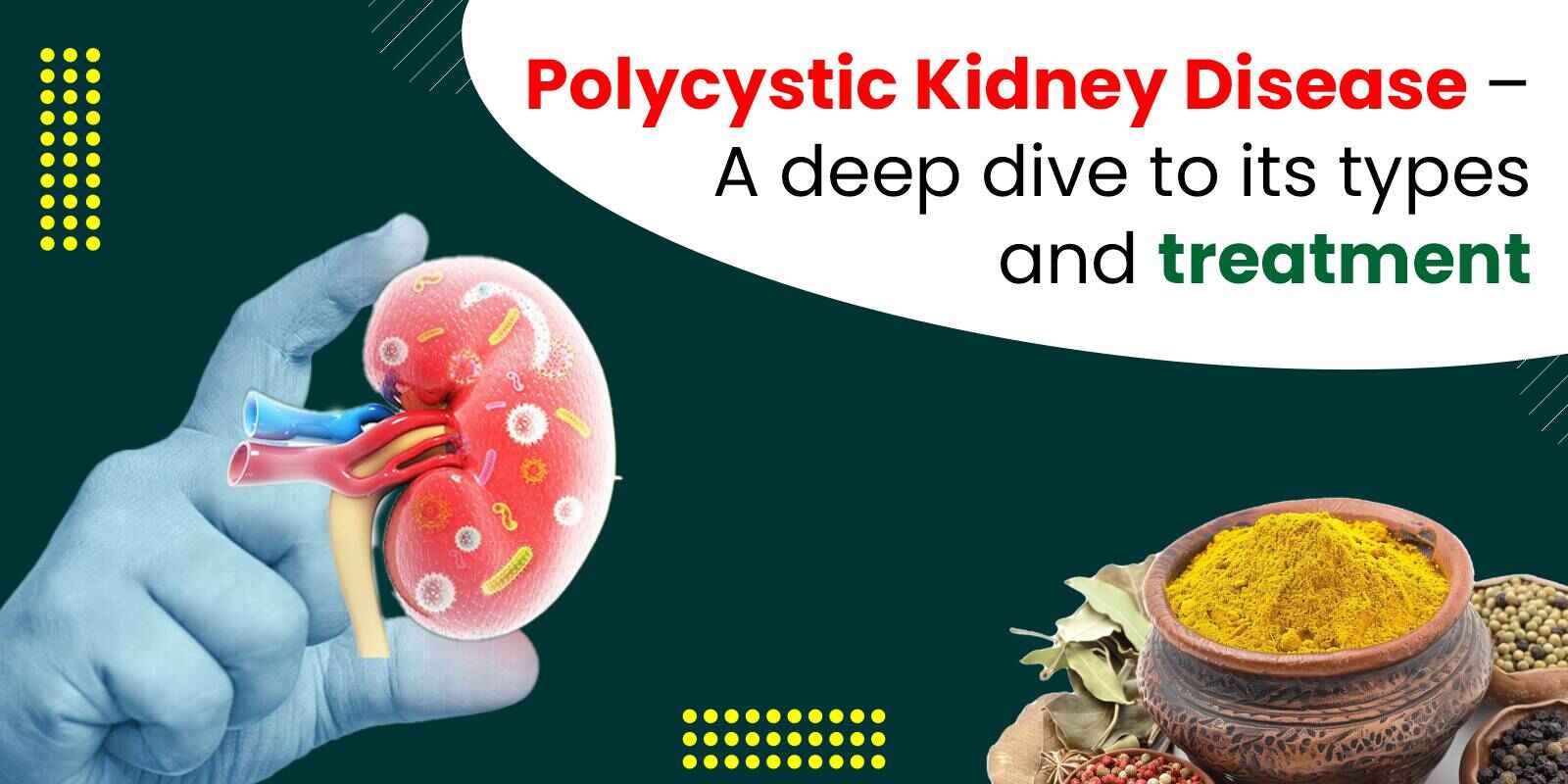
We’ve all heard that the kidneys are incurable. They can only be transplanted or we can use the dialysis method, but have you heard of Kidney disease treatment in Ayurveda? In Ayurveda, it is possible to treat the kidneys because Ayurvedic treatment is simple and effective at managing the causes of the disease.
Polycystic kidney disease treatment in Ayurveda is the purest and safest way to maintain or restore kidney function. Literally, no one wants to have a kidney transplant or go on regular dialysis as both are quite painful and risky.
Polycystic kidney disease is a genetic disorder in which cyst formation begins to develop on the surface of the kidney and the kidney becomes larger. These cysts are filled with fluid. If too many cysts grow or the size of the cyst becomes too large, the kidneys may become more damaged than before. This disease is hereditary. The average number of people affected by this disease depends on the type of disease.
Get to the root of PKD with expert Ayurvedic care. Book a consultation for a tailored treatment approach. For immediate queries, reach out via WhatsApp or Call us now.
There are mainly two types of Polycystic kidney disease (PKD)-
Both types of polycystic kidney disease are incurable but can be cured with Ayurvedic medicine for polycystic kidney disease, a healthy diet, and a lifestyle.
Autosomal dominant polycystic kidney disease (ADPKD) is the most common and frequent type of Polycystic kidney disease. ADPKD can appear individually, meaning that a child has the chance to be born with ADPKD even though his parents already had it.
Cysts only form in the renal due to ADPKD, and signs or symptoms of ADPKD usually appear between the ages of 30 and 50. If parents have autosomal dominant polycystic kidney disease, their children have a 50 percent chance of developing the disease.
Autosomal recessive polycystic kidney disease (ARPKD) is a much rarer form of Polycystic kidney disease. In this case, the child is more likely to have the disease and can only be born with the disease if both parents have the gene that causes it.
Cysts form in the kidneys and liver due to ARPKD. Symptoms of this disease can begin before birth and can cause life-threatening problems in the baby.
Acquired cystic kidney disease (ACKD) is not inherited. It is usually found in patients who already have other renal (kidney) problems. ACKD usually occurs later in life.
Approximately 90 percent of dialysis patients develop ACKD in the last 5 years. People with acquired cystic kidney disease usually seek help because they see blood in their urine. This is because the cyst bleeds into the urinary system.
Dealing with PKD symptoms? Discover effective Ayurvedic treatments. Schedule your consultation today. For quick support, connect with us on WhatsApp or Call us now.
These are the following symptoms of polycystic kidney disease-
Don't ignore PKD symptoms. Schedule a comprehensive Ayurvedic evaluation and treatment plan. Need help right away? Contact us via WhatsApp or Call us now.
There are many ways to identify polycystic kidney disease, including-
Ensure accurate PKD diagnosis with our Ayurvedic experts. Schedule your appointment today. For quick assistance, connect with us on WhatsApp or Call us now.
Ayurveda plays a very important role in our health and life. You must have heard about the healing power of natural herbs from your grandparents.
Pkd treatment in Ayurveda requires a lot of determination and control to show results. If a person really wants to cure their problem, they have to follow a proper diet and essential instructions. Ayurvedic kidney treatment is a complete cure for renal disease.
Ayurvedic treatment includes herbal medicines and remedies to protect all organs from infections and other complications caused by PKD.
Treat PKD the natural way with Ayurveda. Schedule your appointment for a customized treatment plan. For fast assistance, reach out on WhatsApp or Call us now.
Looking for natural remedies for PCOD? Book a consultation to discover effective Ayurvedic treatments. For immediate help, chat with us on WhatsApp or Call us today.
Ayurvedic medicines consist of minerals, metallic substances, and herbal compounds. One of the best Pkd ayurvedic medicine is Lekhniya Guggul Ayurvedic Tablets. These tablets are made using herbal and ayurvedic herbs that are enriched with healing properties to cure PKD and other kidney diseases.
Discover the power of Ayurvedic herbs for PCOD. Book your consultation today for a customized treatment plan. For fast support, contact us via WhatsApp or Call us now.
"Ayurveda is not just a system of medicine; it's a way of life. Connect with us to embrace a lifestyle that nurtures your body, mind, and soul."

Certificate no- AH-2023-0186
JAN 05,2023-JAN 04,2026